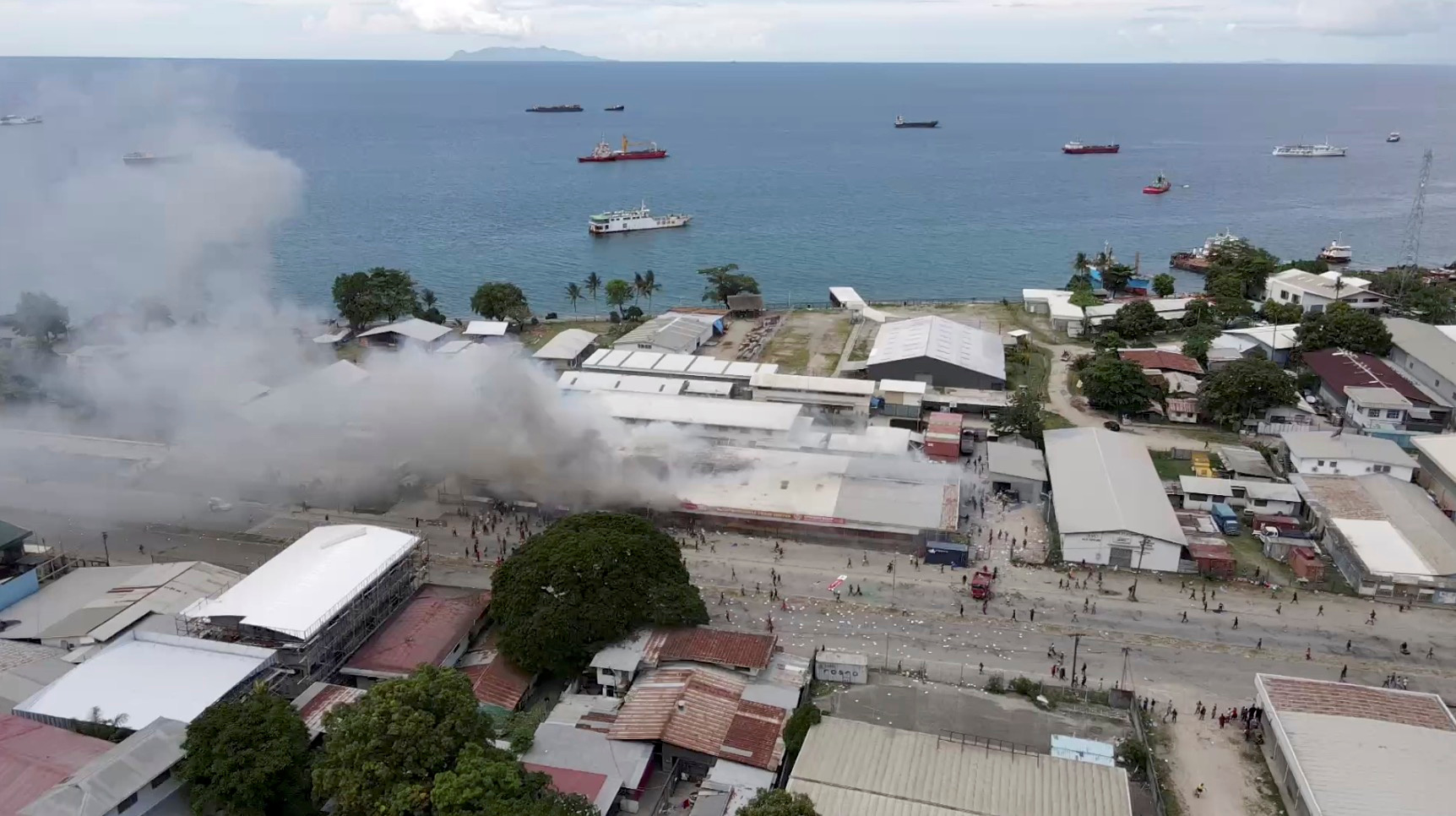Solomon Islands leader blames ‘other powers’ for violent Chinatown protests
The South Pacific nation of fewer than 700,000 people remains divided over a 2019 decision to switch diplomatic ties from Taiwan to China. That is likely one of many factors in recent violent protests, but Prime Minister Manasseh Sogavare insisted it is “the only issue” and that the violence had been “encouraged by other powers” that don’t like China.

For three days last week, the Solomon Islands saw violent protests in the Chinatown area of its capital city, Honiara. Three bodies have been recovered from buildings that were set abaze during the unrest, but it is “unclear if the deaths are directly linked to the protests,” the New York Times reports.
- There are around “3,000 Chinese citizens living and working in the Solomon Islands” according to the Solomon Islands Chinese Association.
There were a “mix of issues that led to the protests,” including economic inequality and ethnic tensions, the Associated Press reports, citing local journalist Gina Kekea and Lowy Institute expert Jonathan Pryke. But one of the issues was almost certainly the country’s switch in diplomatic recognition from Taiwan to China in 2019:
- The government of the South Pacific nation of fewer than 700,000 people made the decision to ditch Taiwan two years ago, apparently motivated more by Beijing’s offers of financial support than by popular sentiment.
- The country’s most populous but poorer island, Malaita, strongly objected to the central government’s decision, and that island’s regional government has continued to maintain ties with Taiwan and accept aid from Washington over Beijing.
- Violence reportedly erupted after protesters from Malaita gathered outside parliament, and their calls for Prime Minister Manasseh Sogavare to address them went unanswered, per Reuters.
- Police “used tear gas and rubber bullets to disperse about 1,000 anti-China protesters who…looted and damaged shops in the city’s Chinatown and marched to the Chinese embassy,” Bloomberg says.
Sogavare blamed the violence on U.S.-China geopolitics, while not using specific terms, in comments to the Australian ABC:
He dismissed other grievances protesters held about his government, insisting the divide over whether to recognise China or Taiwan was the sole source of conflict.
“That’s the only issue, the only issue, and unfortunately, it is influenced and encouraged by other powers,” he said.
“These very countries that are now influencing Malaita are the countries that don’t want ties with the People’s Republic of China…I don’t want to name names, we’ll leave it there, we know who they are,” he said.
China’s Foreign Ministry backed up Sogavare, while also avoiding being too specific in pointing fingers:
We are confident that under Prime Minister Manasseh Sogavare’s leadership, the government of Solomon Islands can restore social order and stability soon. We are gravely concerned over the attacks on Chinese citizens and enterprises…All attempts to disrupt the normal development of relations between China and Solomon Islands are just futile.
Since those vague finger-pointing statements, the violence has receded in Honiara, as a small number of Australian forces were requested and deployed to provide security.
However, other small nations, particularly those in the Pacific that still retain ties with Taipei — Tuvalu, Palau, Kiribati, the Marshall Islands, and Nauru — will likely be anxiously watching the continuing political fallout. “The idea that geopolitical competition has a destabilizing effect on fragile societies is a very strong current to the events that are happening right now…That will not be lost on the region,” the Lowy Institute’s Mihai Sora told Nikkei Asia.
China news, weekly.
Sign up for The China Project’s weekly newsletter, our free roundup of the most important China stories.






